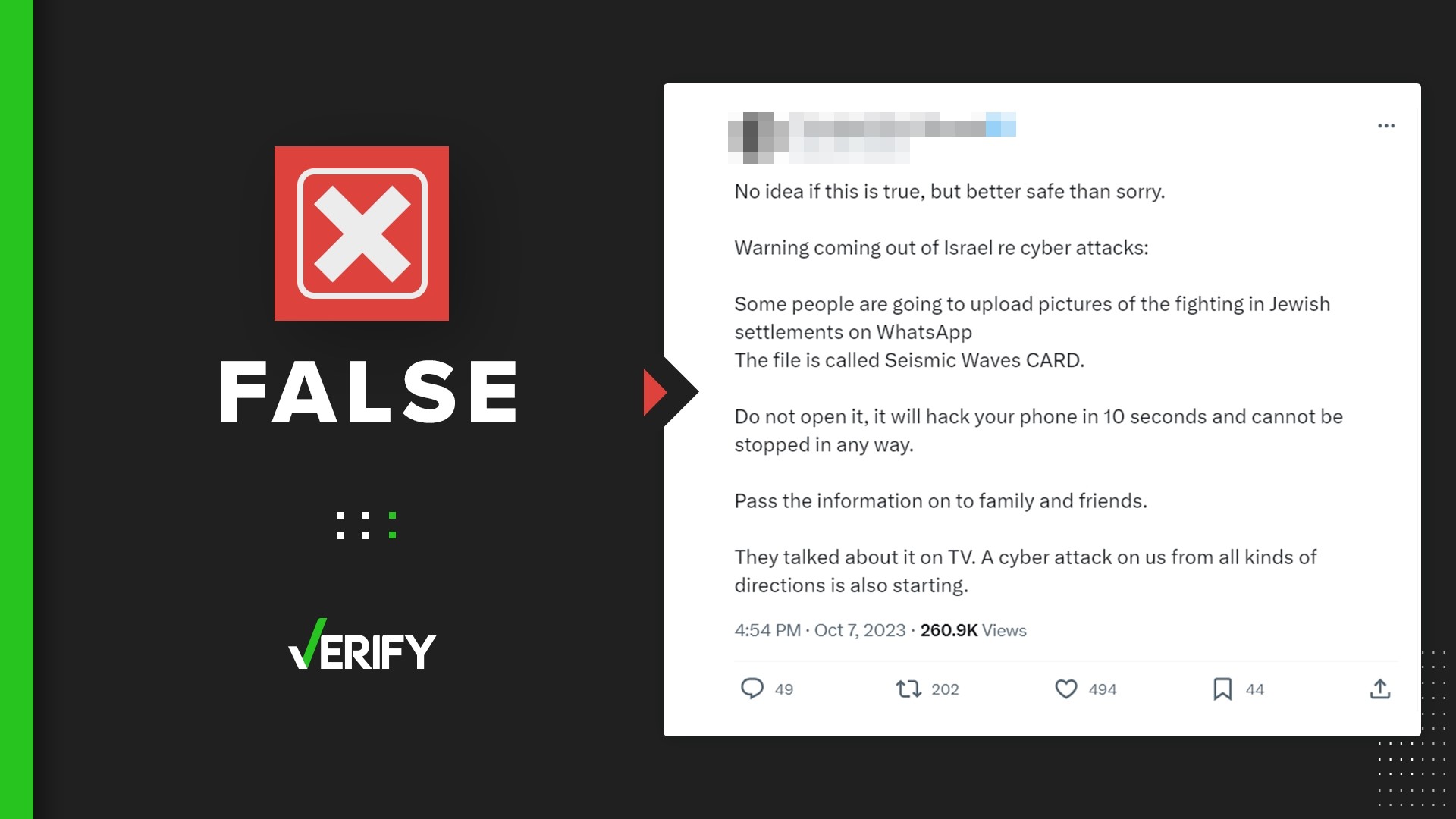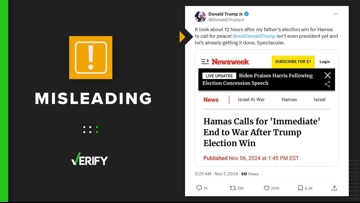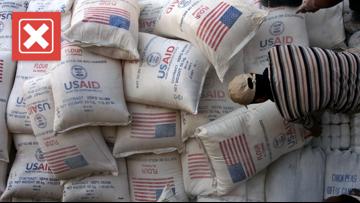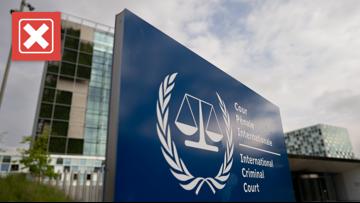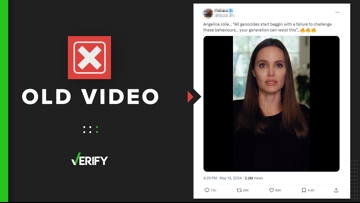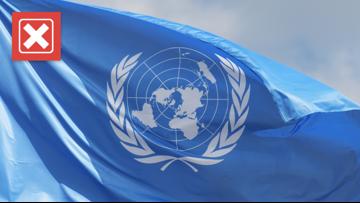As the Israel-Hamas war intensifies, misinformation is flooding social media. VERIFY has fact-checked multiple false and misleading claims and images that have spread online since the war began.
On Oct. 7, a post on X warned of a cyberattack tied to the war on the Meta-owned messaging app WhatsApp. Other X users have shared the same message in multiple languages. It also has been circulating on Facebook. The full text of the chain message reads:
“Warning coming out of Israel re cyber attacks:
Some people are going to upload pictures of the fighting in Jewish settlements on WhatsApp
The file is called Seismic Waves CARD.
Do not open it, it will hack your phone in 10 seconds and cannot be stopped in any way.
Pass the information on to family and friends.
They talked about it on TV. A cyber attack on us from all kinds of directions is also starting.”
THE QUESTION
Are warnings about a WhatsApp cyberattack linked to Israel-Hamas war images legitimate?
THE SOURCES
- WhatsApp, a messaging app owned by Meta
- WhatsApp spokesperson
- Fortra, a cybersecurity company
- Gianluca Stringhini, Ph.D., an associate professor in the Department of Electrical and Computer Engineering at Boston University
THE ANSWER
No, warnings about a WhatsApp cyberattack linked to Israel-Hamas war images are not legitimate.
WHAT WE FOUND
The viral chain message warning of a cyberattack linked to Israel-Hamas war images on WhatsApp is not legitimate. The messages are similar to other debunked posts that circulated online in mid-September after an earthquake struck Morocco.
In an email, a WhatsApp spokesperson told VERIFY the chain message warnings tied to the war are a hoax. The spokesperson pointed us to a Snopes article from Sept. 12 about a similarly-worded hoax that the company also said was “false.”
The hoax chain message from September warned of a “Seismic Wave Card” phone hack disguised as photos of the aftermath of a magnitude 6.8 earthquake that struck Morocco on Sept. 8. VERIFY found that those messages began circulating online around Sept. 11.
The full text of that chain message read:
“They are going to upload some photos of the Moroccan earthquake on WhatsApp. The file is called Seismic Waves CARD, don't open it or see it, it will hack your phone in 10 seconds and it cannot be stopped in any way. Pass the information on to your family and friends. DO NOT OPEN IT. They also said it on TV.”
These types of chain messages are known as “copypasta,” which is internet slang for a block of text that gets copied and pasted repeatedly. VERIFY has fact-checked the legitimacy of several copypasta chain messages and posts in the last few years, including this one from 2021 that was re-circulating online in late September.
Gianluca Stringhini, an associate professor in the Department of Electrical and Computer Engineering at Boston University, previously told VERIFY that copypasta posts “have been happening since the inception of social media” and are typically shared by people who think they’re legitimate.
Stringhini said it is possible to infect a phone with malware by sharing a photo, which has happened recently. In early September, a Washington D.C.-based firm was hit with a “zero-click attack” where people’s iPhones were infected with spyware contained inside images.
Zero-click attacks are cyberattacks that don’t require any interaction from the user, according to cybersecurity company Fortra. But Stringhini said these types of attacks are “quite rare,” and are typically high-profile attacks that are “unlikely to be unleashed on regular users.”
So, we can VERIFY a viral chain message warning about a WhatsApp cyberattack linked to Israel-Hamas war images is a hoax. If you receive an unsolicited message, experts say to be wary of clicking on or downloading any attachments.
The Associated Press contributed to this report.
